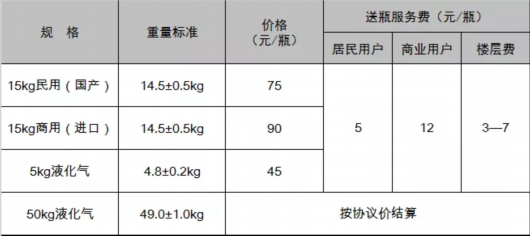дёӯеӣҪиҠӮж—Ҙзҡ„иө·жәҗзҡ„жүӢжҠ„жҠҘ дёӯеӣҪиҠӮж—Ҙзҡ„иө·жәҗеҸҠж–ҮеҢ–еҶ…ж¶ө
The Origins of Chinese Festivals
пјҲLearn to spread China and Chinese cuIture in EngIishпјү

ж–Үз« жҸ’еӣҫ

ж–Үз« жҸ’еӣҫ

ж–Үз« жҸ’еӣҫ
Chinese festivals originated from the ancient Chinese calendric system, which is a combination of the solar system and the lunar system, and known as Nongli or Yinli,the lunar calendar. The basic principle of lunar calendar is, a month is a period as long as a complete moon change cycle,and a year is a period approximately as a solar year.Whenever necessary, a leap month is added. According to this system, 24 jieqi (24 seasonal periods indicating the obvious changes of weather when they come around)are designed to guide agricultural activities, so the system is commonly known as the agricultural calendar, and it is also known as zhong calendar and summer calendar.
дёӯеӣҪзҡ„иҠӮж—Ҙиө·жәҗдәҺдёӯеӣҪеҸӨд»Јзҡ„еҺҶжі•дҪ“зі»пјҢжҳҜйҳіеҺҶе’ҢжңҲеҺҶзҡ„з»“еҗҲпјҢиў«з§°дёәеҶңеҺҶжҲ–йҳҙеҺҶ гҖӮеҶңеҺҶзҡ„еҹәжң¬еҺҹзҗҶжҳҜпјҢдёҖдёӘжңҲжҳҜдёҖдёӘе®Ңж•ҙзҡ„жңҲдә®еҸҳеҢ–е‘ЁжңҹпјҢдёҖе№ҙжҳҜдёҖдёӘиҝ‘дјјеӨӘйҳіе№ҙзҡ„е‘Ёжңҹ гҖӮеҝ…иҰҒж—¶пјҢж·»еҠ й—°жңҲ гҖӮж №жҚ®иҝҷдёҖдҪ“зі»пјҢи®ҫи®Ў24иҠӮж°”пјҲ24дёӘеӯЈиҠӮжҖ§е‘ЁжңҹпјҢиЎЁжҳҺеӨ©ж°”еҮәзҺ°жҳҺжҳҫеҸҳеҢ–ж—¶пјүпјҢз”ЁдәҺжҢҮеҜјеҶңдёҡжҙ»еҠЁпјҢеӣ жӯӨиҜҘдҪ“зі»йҖҡеёёиў«з§°дёәеҶңеҺҶпјҢд№ҹиў«з§°дёәдёӯеҺҶе’ҢеӨҸеҺҶ гҖӮ
Generally speaking, the ancient Chinse calendar divides a year into four seasons, 24 jieqi, 72 hou, 360 days. To be more specifie, a day consists of 12 double hours (shichen); five days make up a hou, so there are 72 hou in a year; three hou make up a jieqi, so a year has 24 jieqi; two jieqi make up a month, so a year has 12 months; three months make up a season, and four seasons make up a year. The four seasons, the eight jieqi, the Heavenly Stems and the Earthly Branches are all important factors in the forming of Chinese festivals.
дёҖиҲ¬жқҘиҜҙпјҢдёӯеӣҪеҸӨд»Јзҡ„еҺҶжі•жҠҠдёҖе№ҙеҲҶдёәеӣӣдёӘеӯЈиҠӮпјҢ24иҠӮж°”пјҢ72еҖҷпјҢ360еӨ© гҖӮжӣҙе…·дҪ“ең°иҜҙпјҢдёҖеӨ©з”ұ12дёӘеҸҢеҖҚе°Ҹж—¶з»„жҲҗпјҲж—¶иҫ°пјүпјӣдә”еӨ©з»„жҲҗдёҖдёӘеҖҷпјҢжүҖд»ҘдёҖе№ҙжңү72дёӘеҖҷпјӣдёүдёӘдҫҜз»„жҲҗдёҖдёӘиҠӮж°”пјҢжүҖд»ҘдёҖе№ҙжңү24дёӘиҠӮж°”пјӣдёӨдёӘиҠӮж°”з»„жҲҗдёҖдёӘжңҲпјҢжүҖд»ҘдёҖе№ҙжңү12дёӘжңҲпјӣдёүдёӘжңҲз»„жҲҗдёҖдёӘеӯЈиҠӮпјҢеӣӣеӯЈз»„жҲҗдёҖе№ҙ гҖӮеӣӣеӯЈгҖҒе…«иҠӮж°”гҖҒеӨ©е№Іең°ж”ҜйғҪжҳҜдёӯеӣҪиҠӮж—ҘеҪўжҲҗзҡ„йҮҚиҰҒеӣ зҙ гҖӮ
The four seasons refer to spring, summer, autumn and winter. According to the lunar calendar, the first three months make up spring, the next three summer, the following three autum, and the last three winter. Each season is subdivided into three equally long priods, namely early (еӯҹ), middle (д»І)and late(еӯЈ). For instance,early spring refers to the first month, middle spring the second month, and late springthe third month.
The first eight jieqi refer to the earliest designated and the most important eight seasonal periods. Since ancient times, China has always attached great importance to seasonal timing, which is closely related to agricultural activities. As early as in the Zhou Dynasty, the first eight jieqi were defined, namely, the Beginning of Spring,the Spring Equinox, the Beginning of Summer, the Summer Solstice, the Beginning of Autumn, the Autumn Equinox, the Beinning of Winter and the Winter Solstice.During the Qin Dynasty, all 24 jieqi were defined.
еӣӣеӯЈжҳҜжҢҮжҳҘеӨ©гҖҒеӨҸеӨ©гҖҒз§ӢеӨ©е’ҢеҶ¬еӨ© гҖӮж №жҚ®еҶңеҺҶпјҢеүҚдёүдёӘжңҲжҳҜжҳҘеӨ©пјҢжҺҘдёӢжқҘдёүдёӘжңҲжҳҜеӨҸеӨ©пјҢеҶҚеҗҺжқҘзҡ„дёүдёӘжңҲжҳҜз§ӢеӨ©пјҢжңҖеҗҺдёүдёӘжңҲжҳҜеҶ¬еӨ© гҖӮжҜҸдёӘеӯЈиҠӮеҲҶдёәдёүдёӘзӯүй•ҝзҡ„ж—¶й—ҙж®өпјҢеҚіж—©жңҹ(еӯҹ), дёӯжңҹ(д»І)е’Ңжҷҡжңҹ(еӯЈ) гҖӮдҫӢеҰӮпјҢеҲқжҳҘжҳҜжҢҮ第дёҖдёӘжңҲпјҢд»ІжҳҘжҳҜжҢҮ第дәҢдёӘжңҲпјҢжҡ®жҳҘжҳҜжҢҮ第дёүдёӘжңҲ гҖӮ
еүҚе…«дёӘиҠӮж°”жҳҜжҢҮжңҖж—©жҢҮе®ҡе’ҢжңҖйҮҚиҰҒзҡ„е…«дёӘиҠӮж°” гҖӮдёӯеӣҪиҮӘеҸӨд»ҘжқҘе°ұеҚҒеҲҶйҮҚи§ҶеӯЈиҠӮжҖ§пјҢеӣ е…¶дёҺеҶңдёҡжҙ»еҠЁеҜҶеҲҮзӣёе…і гҖӮж—©еңЁе‘Ёд»ЈпјҢе°ұзЎ®з«ӢдәҶеүҚе…«дёӘиҠӮж°”пјҢеҚіз«ӢжҳҘгҖҒжҳҘеҲҶгҖҒз«ӢеӨҸгҖҒеӨҸиҮігҖҒз«Ӣз§ӢгҖҒз§ӢеҲҶгҖҒз«ӢеҶ¬е’ҢеҶ¬иҮі гҖӮеңЁз§ҰжңқпјҢжүҖжңү24дёӘиҠӮж°”еҫ—д»Ҙе…ЁйғЁзЎ®з«Ӣ гҖӮ
The traditional Chinese calendar divides the whole year into 12 months, among which 6 months consist of 30 days and another six consist of 29 days. Thus, a Chinese year is 364 days, which is 1.14219 days shorter than a solar year. To make up for the gap, ancient Chinese set up the leap month. In the end, they decided that in every 19 years, there should be 7 leap months. The first day and the fifteenth day of some months have become important festivals.
дёӯеӣҪдј з»ҹеҺҶжі•е°ҶдёҖе№ҙеҲҶдёә12дёӘжңҲпјҢе…¶дёӯ6дёӘжңҲеҢ…жӢ¬30еӨ©пјҢеҸҰеӨ–6дёӘжңҲеҢ…еҗ«29еӨ© гҖӮеӣ жӯӨпјҢдёӯеӣҪзҡ„дёҖе№ҙжҳҜ364еӨ©пјҢжҜ”йҳіеҺҶе№ҙзҹӯ1.14219еӨ© гҖӮдёәдәҶејҘиЎҘиҝҷдёҖе·®и·қпјҢдёӯеӣҪеҸӨд»Ји®ҫз«ӢдәҶй—°жңҲ гҖӮжңҖеҗҺзЎ®е®ҡжҜҸйҡ”19е№ҙдә§з”ҹ7дёӘй—°жңҲ гҖӮжңүдәӣжңҲд»Ҫзҡ„第дёҖеӨ©е’Ң第еҚҒдә”еӨ©е·Із»ҸжҲҗдёәйҮҚиҰҒзҡ„иҠӮж—Ҙ гҖӮ
After the 1911 Revolution, the first day of the lunar month was defined as the Spring Festival, while the first day of the solar month was defined as the New Year.Today most Chinese people attach greater importance to the Spring Festival. They regard it as the вҖңbig new yearвҖқ, and they call the first day of the solar month вҖңthe foreign calendar New YearвҖқ. The Mid-Autumn Festival, which falls on the 15th of the eighth lunar month, was very popular during the Tang and Song dynasties. Today it has become the second largest traditional Chinese festival for people of the Han nationality.
жҺЁиҚҗйҳ…иҜ»
- е°јеҸӨжӢүзү№ж–ҜжӢүйў„иЁҖжңүе“Әдәӣ е°јеҸӨжӢүВ·зү№ж–ҜжӢүзҡ„еҚҒеӨ§жғҠдё–йў„иЁҖ
- зҸ з©Ҷжң—зҺӣеі°дҪҚдәҺжҲ‘еӣҪе’Ңе°јжіҠе°” зҸ з©Ҷжң—зҺӣеі°еңЁдёӯеӣҪдёҺе°јжіҠе°”иҫ№з•ҢдёҠеҗ—
- дҪ зҹҘйҒ“е“ӘдәӣеҠЁзү©еҶ¬зң зҡ„зҹҘиҜҶ е“ӘдәӣеҠЁзү©еҶ¬зң е“ӘдәӣеҠЁзү©еӨҸзң
- |еҘҪзҝЎзҝ дёҚжҳҜиҝҷд№ҲиҪ»жқҫе°ұиғҪйӣ•еҲ»еҮәжқҘзҡ„пјҢеҲ«жғізҡ„еӨӘз®ҖеҚ•дәҶ
- жҸҸеҶҷжңҲдә®зҡ„иҜ—еҸҘжңүе“Әдәӣпјҹ
- ж•…е®«зҡ„е®«е»·еҫЎзҢ«жҳҜд»Җд№Ҳпјҹ
- дёәд»Җд№Ҳж•…е®«еҢҫдёҠзҡ„вҖңй—ЁвҖқеӯ—жІЎжңүй’©пјҹ
- е…ідәҺжҳҘеӨ©зҡ„25йҰ–з®ҖеҚ•еҸӨиҜ—жңүе“Әдәӣпјҹ
- йҮҚйҳіиҠӮзҷ»й«ҳзҡ„еҜ“ж„ҸжҳҜд»Җд№Ҳпјҹ
- ж–°жүӢеҰӮдҪ•зҗҶиҙўпјҹ

















